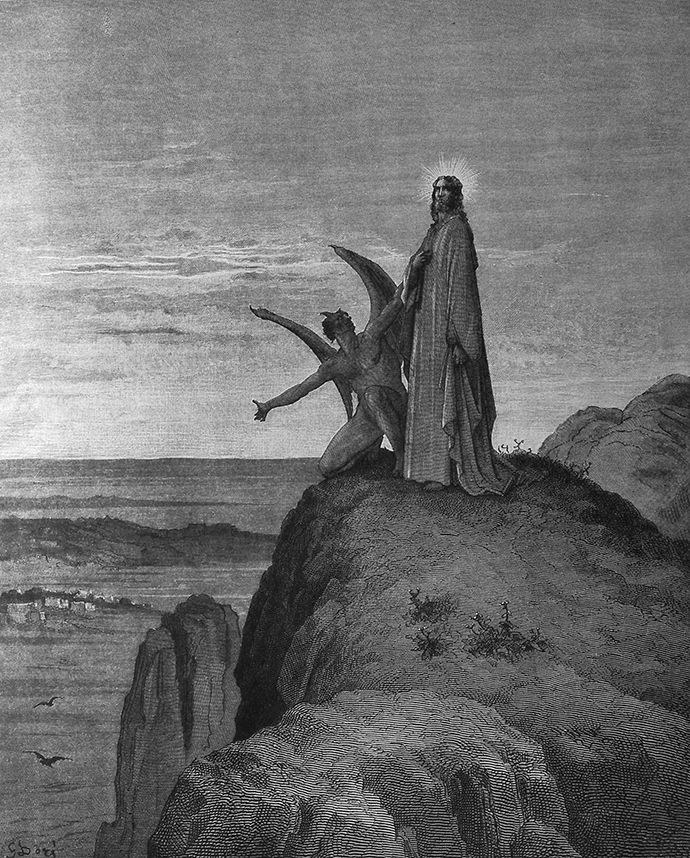In the liturgy, the destiny of the human race is told as the tale of two “types” of men — the first man, Adam, and the new Adam, Jesus (see 1 Corinthians 15:21—22; 45—59).
Paul’s argument in the epistle is built on a series of contrasts between “one” or “one person” and “the many” or “all.” By one person’s disobedience, sin and condemnation entered the world, and death came to reign over all. By the obedience of another one, grace abounded, all were justified, and life came to reign for all.
This is the drama that unfolds in the first reading and Gospel.
Formed from the clay of the ground and filled with the breath of God’s own Spirit, Adam was a son of God (see Luke 3:38), created in his image (see Genesis 5:1—3). Crowned with glory, he was given dominion over the world and the protection of his angels (see Psalms 8:6—8; 91:11—13). He was made to worship God — to live not by bread alone but in obedience to every word that comes from the mouth of the Father.
Adam, however, put the Lord his God to the test. He gave in to the serpent’s temptation, trying to seize for himself all that God had already promised him. But in his hour of temptation, Jesus prevailed where Adam failed — and drove the devil away.
Still we sin after the pattern of Adam’s transgression. Like Adam, we let sin in the door (see Genesis 4:7) when we entertain doubts about God’s promises, when we forget to call on him in our hours of temptation.
But the grace won for us by Christ’s obedience means that sin is no longer our master.
As we begin this season of repentance, we can be confident in his compassion, that he will create in us a new heart (see Romans 5:5; Hebrews 8:10). As we do in the psalm, we can sing joyfully of our salvation, renewed in his presence.
Scott Hahn is founder of the St. Paul Center for Biblical Theology, stpaulcenter.com.

